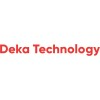
There are 3 Companies in Turkey
that provide Disaster Recovery Services!
While states, large companies, and universities discuss terms like the Fourth Industrial Revolution, 5G, the Internet of Things, artificial intelligence, and cybersecurity, consumers concern themselves with applications for their mobile devices, cloud technology, or developments in digital gaming. However, the origin of all of these is the sector of information technology (IT).
Discover Top IT Companies in Turkey specialized in Disaster Recovery and other related services. Find the best IT service providers for your projects.
Disaster recovery services are like a safety net for your business's data and operations. They help you prepare for unexpected events like natural disasters or cyberattacks, ensuring that you can quickly recover and continue your business even in challenging circumstances.
More than 327 verified IT companies specialize in providing disaster recovery services. These companies have expertise in creating and implementing strategies to protect your data and IT infrastructure. Well-known IT companies offering disaster recovery services include IBM, Dell Technologies, and Hewlett Packard Enterprise (HPE).
Handpicked companies • No obligation to hire • 100% risk-free
Explore Top Disaster Recovery Companies in Turkey
Deka Technology delivers customized software, cloud management, and analytics solutions, empowering businesses with innovative and scalable technology
With over 20 years of experience, Netsmart has been one of the leading IS companies providing project design, integration, and consultancy services.
Filter Disaster Recovery Companies in Turkey by Cities
Find the right tech company near you or from a specific city. Some of the best companies might be located in smaller cities.
Find more Disaster Recovery companies around the world
TechBehemoths is the world's most advanced and user-friendly platform to match IT Companies with real clients without hustle.
The IT Industry In Turkey: Companies and Country Overview
While states, large companies, and universities discuss terms like the Fourth Industrial Revolution, 5G, the Internet of Things, artificial intelligence, and cybersecurity, consumers concern themselves with applications for their mobile devices, cloud technology, or developments in digital gaming. However, the origin of all of these is the information technology (IT) and software sector. The IT sector, which keeps states, companies, and individuals functioning, is a strategic –in the fullest sense of the word–arena.
Efforts towards digitalization are increasing every day throughout the world, creating new technology and solutions almost every day and shaping the future. Turkey has also rolled up its sleeves and gotten to work in this area. The information sector has become important in state policies, in companies’ business targets, and in education. The state aims to speed up its R&D efforts in software, in educational projects, and production by implementing various kinds of promotions and incentives.
Using local capital has increased the productivity of this sector, which provides added value far above the cost of expenditure for education and investment. Meanwhile, Turkey has also begun to lead in service exports.
While players in Turkey’s information sector cooperate with all other sectors in the country to increase digital transformation and productivity, the export rate is also increasing. The Turkish information sector, which supports Turkish mobile operators, bankers, and the defense industry -all of which are world leaders- has become a regional leader. This progress is demonstrated by the statistics and rankings.
Why Work With Turkish IT Companies
In the last two decades, Turkish IT companies managed to make a name for themselves, at least in the region, and also made the country a regional tech hub. One of the main reasons for the high performance of Turkish companies is the increasing professional workforce that empowers the entire IT ecosystem. In their turn, IT companies have specialized in creating, developing, and delivering professional digital services both for internal and external markets.
Between 2015-2019, the demand for Turkish digital services grew by 300%, which tells a lot about the preferences of clients that reoriented to a cheaper and still well-developed market. The demand is still in 2025 due to the growth of the Turkish economy and the government’s investment in the development of IT infrastructure.
What to Be Aware of When Working With Turkish IT Companies
Even though most of the services provided by Turkish digital agencies are professional, there is still a 3% chance that clients will meet an agency that lacks experience or has credibility issues. This problem finds its roots in the fast-development process of the entire sector.
Another potential issue you may encounter when working with Turkish IT companies is management. Again, it’s not a regular issue a client may meet, but it’s something that needs to be paid attention to.
How Reliable Are Turkish IT Companies
Together with a fast-developing IT industry, Turkish digital agencies and IT companies also improved their reputation and became one of the region’s most favorite partners in developing web solutions for the country’s public sector, private companies, and neighboring countries' entities.
The price per quality is considered one of the most reasonable on the international market, and there are no bureaucratic issues in contracting, working with, and ending agreements with Turkish companies. As it was mentioned previously, the government-supported facilities for IT companies create a good environment for the development of the IT industry.
What is Disaster Recovery and what are its benefits for your projects?
Disaster recovery services are like a safety net for your business's data and operations. They help you prepare for unexpected events like natural disasters or cyberattacks, ensuring that you can quickly recover and continue your business even in challenging circumstances.
More than 327 verified IT companies specialize in providing disaster recovery services. These companies have expertise in creating and implementing strategies to protect your data and IT infrastructure. Well-known IT companies offering disaster recovery services include IBM, Dell Technologies, and Hewlett Packard Enterprise (HPE).
Disaster recovery service providers use a range of tools and technologies to safeguard data and ensure business continuity. These include backup and recovery software, cloud storage solutions, virtualization technologies, and monitoring systems. Popular cloud platforms like Amazon Web Services (AWS) and Microsoft Azure also play a crucial role in disaster recovery.
Disaster recovery services are typically included in a suite of services that also address business continuity and risk management. Other related services may include:
-
Business Continuity Planning: Developing comprehensive strategies to keep your business running during disruptions.
-
Cybersecurity Services: Protecting against cyber threats and data breaches, which are often a cause of disasters.
-
Risk Assessment: Identifying vulnerabilities and potential threats to your business.
-
Emergency Response Planning: Preparing for immediate actions in the event of a disaster.
-
Data Protection Services: Implementing data encryption, access controls, and data loss prevention measures.
Selecting the right IT company for disaster recovery services requires evaluating their experience, the comprehensiveness of their disaster recovery solutions, and their responsiveness in case of an emergency. Look for providers who offer tailored disaster recovery plans that align with your specific business needs and recovery time objectives (RTOs).
Disaster recovery service providers are essential for various projects and scenarios, including:
-
Data Centers: Ensuring the continuity of critical data center operations.
-
E-commerce Websites: Protecting online businesses from downtime due to technical issues or cyberattacks.
-
Healthcare Systems: Safeguarding patient records and medical systems to ensure uninterrupted care.
-
Financial Institutions: Meeting regulatory requirements for data protection and business continuity.
-
Manufacturing Plants: Minimizing production disruptions caused by equipment failures or supply chain interruptions.
Disaster recovery services are crucial for companies of all sizes and industries, including:
-
Small Businesses: Protecting essential data and ensuring minimal downtime.
-
Enterprises: Managing complex IT environments and maintaining regulatory compliance.
-
Healthcare Providers: Safeguarding patient records and critical medical systems.
-
Financial Institutions: Ensuring uninterrupted banking and financial services.
-
Government Organizations: Maintaining public services and data integrity during emergencies.
Disaster recovery is not a one-size-fits-all solution. It's essential to conduct a risk assessment and work with a disaster recovery service provider to develop a tailored plan that matches your business's specific needs and budget. Regular testing and updates of your disaster recovery plan are also crucial to ensure it remains effective as your business evolves.


